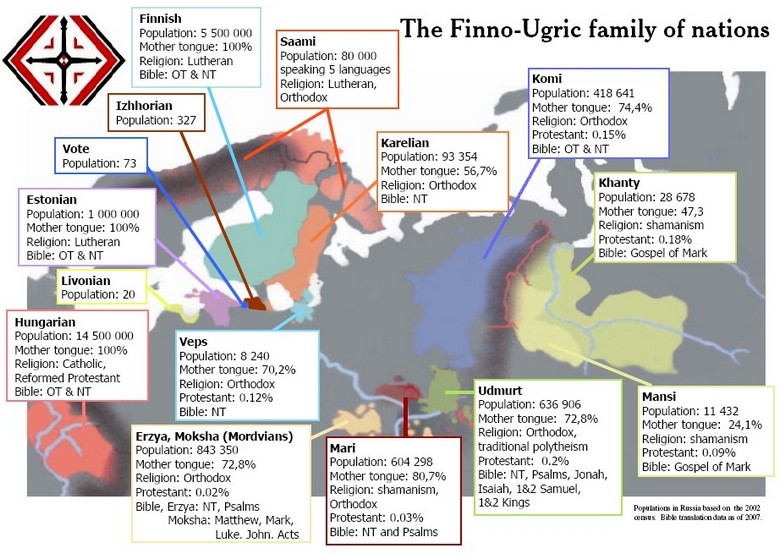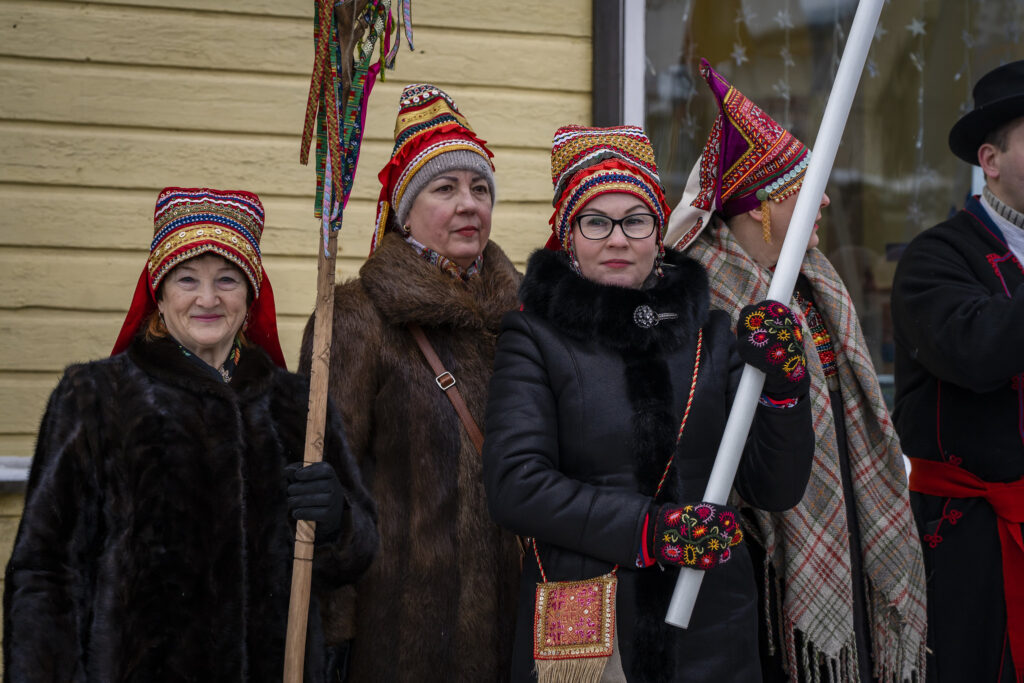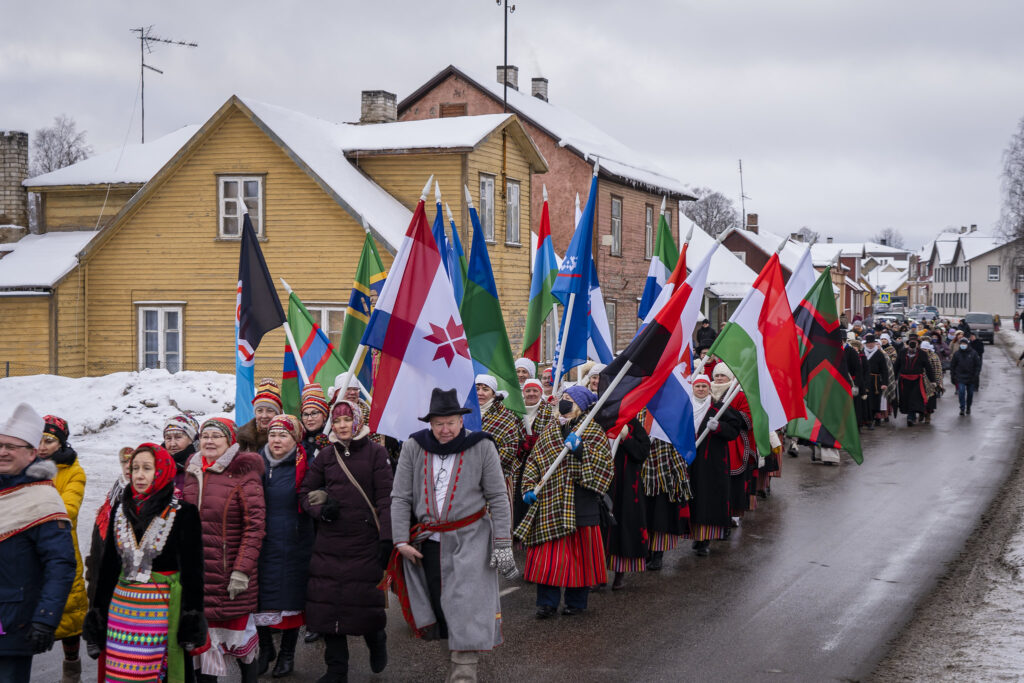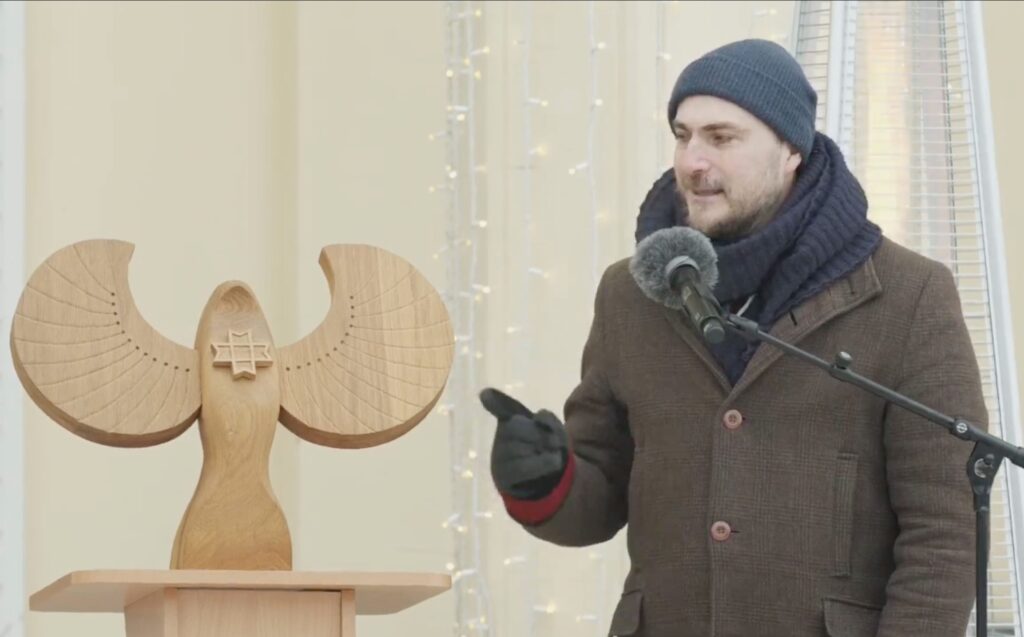Oliver Loode, an Estonian human rights advocate of the indigenous Uralic peoples, says in an interview with Estonian World that the statement of the Association of the Finno-Ugric Peoples of the Russian Federation that called to boycott the next World Congress of Finno-Ugric Peoples in Tartu, Estonia, is probably Kremlin’s work, with instructions possibly coming straight from the president’s administration.
The Association of the Finno-Ugric Peoples of the Russian Federation announced on 23 April that their representatives will not participate in the next World Congress of Finno-Ugric Peoples, due to take place this June in Estonia. The association called into the question the need for congresses in the future and blamed them for “interfering in the internal affairs of the Russian Federation and its peoples”. The statement especially blamed Estonia and Finland – and their respective delegations.
Oliver Loode, the managing director of the Otepää, Estonia-based URALIC Centre that promotes and protects the language and cultural rights of Finno-Ugric and Samoyedic peoples of Eurasia, knows the indigenous people of Russia well. He has worked with indigenous peoples since 2009, after attending a Finno-Ugric youth forum in Kudymkar in Perm Region, Russia, as a speaker. Loode also initiated the Finno-Ugric Capitals of Culture programme that under the leadership of URALIC Centre continues to evolve (this year, Abja-Paluoja in Estonia is the Finno-Ugric capital of culture). In Loode’s opinion, the Russian statement does not represent the genuine Finno-Ugric community of Russia.
Does the statement by the Association of the Finno-Ugric Peoples of the Russian Federation – also known as AFUN RF – mean Russia is effectively withdrawing from the Finno-Ugric cooperation?
The international Finno-Ugric movement is more than a century old, rooted in academic and civil society cooperation. Hence it is not so easy for Russia as a whole to leave it, and certainly not as a result of one political statement by a pro-Kremlin association.
What this statement by the Association of Finno-Ugric Peoples of Russia implies is that in the view of this organisation, which is known for its good relations with federal authorities in Moscow, the system of Finno-Ugric world congresses has become irrelevant. Which is why they are calling for Russian Finno-Ugric representatives to effectively boycott the upcoming congress in Tartu, and are questioning the need for such congresses in general.
But because the Finno-Ugric movement is much more than the system of world congresses, this does not mean that Russia, in the sense of Finno-Ugric peoples, NGOs and individual activists from Russia, are out of the game.

So, in theory at least, some Russian Finno-Ugric representatives could still attend?
There will certainly be representatives of Finno-Ugric peoples of Russia attending the congress – in person or online – in at least an observer capacity.
The real question is whether any Finno-Ugric peoples of Russia will form official delegations, the way it has been done before. For this to happen, something more would be needed than this statement by AFUN RF. For example, a message from federal authorities – such as the president’s administration – reinforcing the main points of the AFUN RF statement.
Delegations will not be formed if there will be a fear that attending the congress will have negative consequences for participants. I hope this will not be the case, though, and that many if not all Russian Finno-Ugric peoples will send their delegations to the congress.

How do you comment the Russian association’s accusations that the World Congresses are held not in order to constructively solve the problems of the Finno-Ugrians, but as an instrument of interference – especially by Estonia and Finland – in the internal affairs of the Russian Federation and its peoples? The association also cited a “disrespect” from other nations, claiming that at one time, the largest Russian delegation (Mordovian) were left without a hotel and at other time, the Russian delegations were not provided a bus transport.
This is part of a broader narrative promoted by Russia that the West is patronising Russia and treating it with disrespect.
During my 11 years of experience in the Finno-Ugric movement, I have not come across such situations where Estonians, Finns or Hungarians would have somehow tried to change political beliefs or worldviews of Russia’s Finno-Ugrians. In fact, it is the opposite – when Finno-Ugrians from the West and East come together, there is little or no talk about politics, and much more about music and languages and such. There is much celebration of each other’s cultures, Finno-Ugric bonding.
But this is something that the folks in the Kremlin, and their stooges – like AFUN RF – have a hard time understanding, because they inhabit completely different realities and share different values. I am not even going to comment on the accusations as regards to hotels and transport, this is so ridiculous.

Who is behind the Russian statement, in your opinion? Is it a work of Moscow’s bureaucrats or did some members of the Russian Finno-Ugric community also have a say?
As of today, we do not know exactly who commissioned the statement, but we can guess.
Given that AFUN RF was effectively set up by federal authorities as a parallel structure to the Consultative Committee of Finno-Ugric Peoples (KKFUN) that organises world congresses, and given how closely aligned its work has been with the Kremlin, my guess is that general instructions for the statement came from Moscow – either the Federal Agency for Ethnic Affairs or straight from the president’s administration. The text itself was written by AFUN RF’s leader Petr Tultaev, and coordinated with federal authorities.
The proof of this will arrive when there will be some reaction by Russian federal authorities about their participation in the world congress in Tartu, given that Estonian president Kersti Kaljulaid’s invitation to Vladimir Putin should still be valid. If they decline participation, referring to the AFUN RF statement, then there will be no doubt about the nature of this game.
Cover: Oliver Loode. Photo by Fenno-Ugria NGO.

